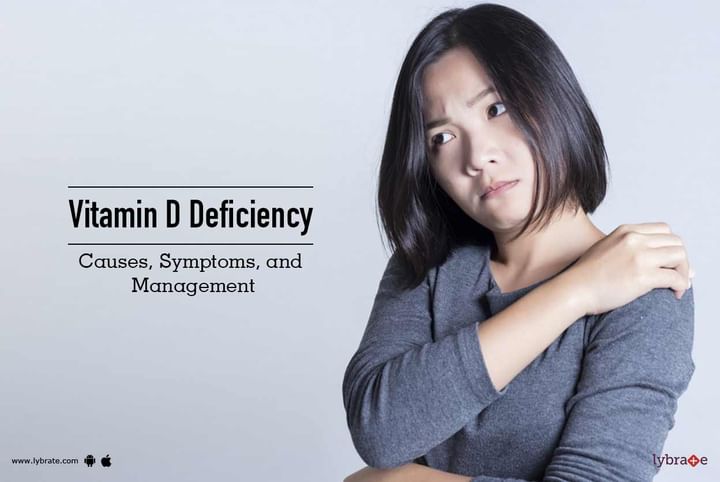Vitamin D Deficiency Causes, Symptoms, and Management
Popularly known as the sunshine vitamin, vitamin D is essential for optimal bone health. Though calcium is the important ingredient of the bones, vitamin D is essential for calcium absorption and so contributes to good bone health.
Causes- Vitamin D is naturally formed by the body on exposure to sunlight and is present in dairy products, fish, fish oils, egg yolk, etc. However, use of good sun protection, lactose intolerance, and vegan diet followers can have vitamin D deficiency.
Symptoms- While bones are primarily affected due to vitamin D deficiency, there are other symptoms indicative of vitamin D, as noted below.
-
Constant bone pain, even causing fractures
-
Deformed bone formation in children
-
Muscular weakness
-
Severe asthma in children
-
Increased risk of cardiovascular disease
-
Increases risk for colorectal, prostate, and breast cancer
-
Cognitive impairment
-
Increases autoimmune disorders like inflammatory bowel disease and multiple sclerosis
-
Increased infections including flu
-
Reduces ability of DNA for repair
-
Improves overall metabolic processes
-
Produces insulin resistance, thereby affecting sugar processing
Vitamin D plays an important role and a healthy individual would have about 20 to 50 nanograms per millilitre of blood. As noted above, it is naturally formed by the body when exposed to the sun. However, those are not exposed to the sun too much, are obese, or are lactose intolerant, may have problems making sufficient vitamin D and may be deficient.
Management- There are two key components to management of this condition – prevention and treatment.
Prevention requires that you get adequate sun exposure so that the body is able to make the required amounts of vitamin D. About 15 minutes of sun exposure per day is recommended. If the weather does not allow for adequate sun exposure, make sure your diet contains foods with vitamin D in them. Eat grains and dairy products that are fortified with vitamin D. Foods such as fish, fish oils and egg yolk are also rich in vitamin D.
While sun and diet are usually sufficient to prevent vitamin D deficiency, there are increasingly more people with a deficiency of this essential vitamin. This is due to increased practices of vegan diet, sun protection, lactose intolerance, and of course obesity.
For those who end up with vitamin D deficiency, supplementation is the most viable solution. A word of caution though when taking supplements. Vitamin D is a fat-soluble vitamin and can accumulate in the body. Higher levels can cause heart and kidney damage and therefore are not healthy for the body.
With some cautious measures, getting sufficient sun exposure and some food modifications should help in preventing vitamin D deficiency. In case you have a concern or query you can always consult an expert & get answers to your questions!



+1.svg)
